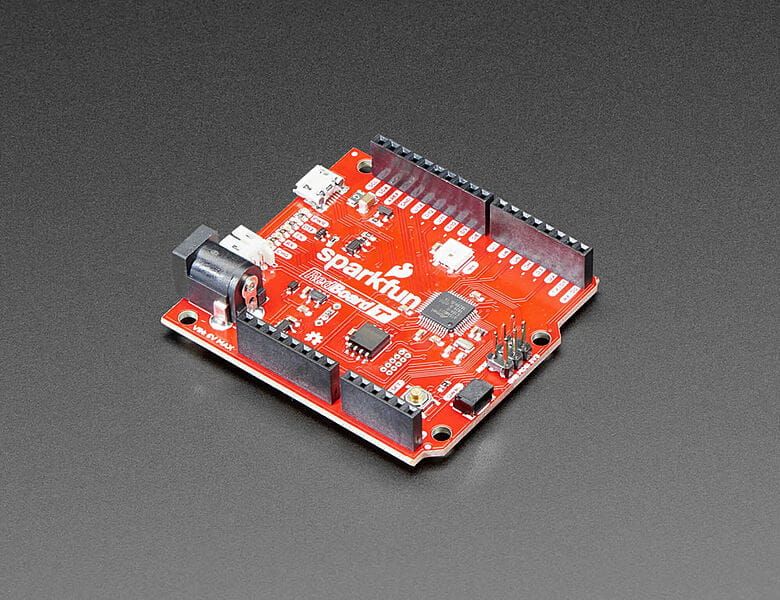
RedBoard Turbo by SparkFun
The RedBoard Turbo uses the ATSAMD21G18, which is an ARM Cortex M0+, 32-bit microcontroller that can run at up to 48MHz. With 4MB of external flash memory and a UF2 (USB Flashing Format) bootloader, the RedBoard Turbo provides an economical and easy to use development platform.
The RedBoard Turbo can be flashed over the Mass Storage Class (MSC) just like a removable flash drive, thanks the the UF2 bootloader. With this bootloader, the RedBoard Turbo shows up on your computer as a USB storage device without having to install drivers and can be used with CircuitPython.
Purchase
Contribute
Have some info to add for this board? Edit the source for this page here.
CircuitPython 10.1.3
This is the latest stable release of CircuitPython that will work with the RedBoard Turbo. Use this release if you are new to CircuitPython.
Modules included in this download
adafruit_pixelbuf analogio array audiobusio audiocore audioio board builtins busdisplay busio busio.SPI busio.UART collections digitalio displayio epaperdisplay fontio fourwire i2cdisplaybus locale math microcontroller neopixel_write nvm onewireio os paralleldisplaybus pulseio pwmio random rotaryio rtc storage struct supervisor sys terminalio time touchio usb_cdc usb_hid usb_midi warningsFeatures: Battery Charging, STEMMA QT/QWIIC, Arduino Shield Compatible
CircuitPython 10.2.0-alpha.1
This is the latest development release of CircuitPython that will work with the RedBoard Turbo.
Alpha development releases are early releases. They are unfinished, are likely to have bugs, and the features they provide may change. Beta releases may have some bugs and unfinished features, but should be suitable for many uses. A Release Candidate (rc) release is considered done and will become the next stable release, assuming no further issues are found.
Please try alpha, beta, and rc releases if you are able. Your testing is invaluable: it helps us uncover and find issues quickly.
Release Notes for 10.2.0-alpha.1
Modules included in this download
adafruit_pixelbuf analogio array audiobusio audiocore audioio board builtins busdisplay busio busio.SPI busio.UART collections digitalio displayio epaperdisplay fontio fourwire i2cdisplaybus locale math microcontroller neopixel_write nvm onewireio os paralleldisplaybus pulseio pwmio random rotaryio rtc storage struct supervisor sys terminalio time touchio usb_cdc usb_hid usb_midi warningsFeatures: Battery Charging, STEMMA QT/QWIIC, Arduino Shield Compatible
Absolute Newest
Every time we commit new code to CircuitPython we automatically build binaries for each board and language. The binaries are stored on Amazon S3, organized by board, and then by language. These releases are even newer than the development release listed above. Try them if you want the absolute latest and are feeling daring or want to see if a problem has been fixed.
Previous Versions of CircuitPython
All previous releases of CircuitPython are available for download from Amazon S3 through the button below. For very old releases, look in the OLD/ folder for each board. Release notes for each release are available at GitHub button below.
Older releases are useful for testing if you something appears to be broken in a newer release but used to work, or if you have older code that depends on features only available in an older release. Otherwise we recommend using the latest stable release.
